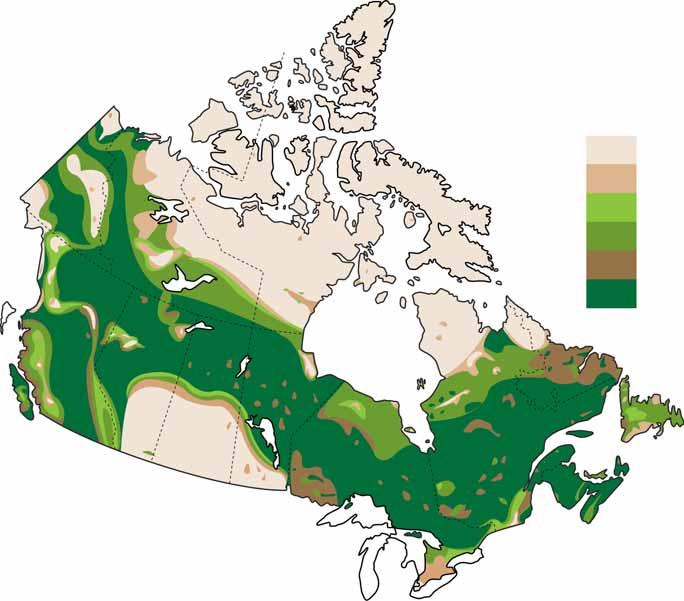
3 minute read
Renewable Energy: The wave of the future – available today
BY ERIN BASWICK, HONEYWELL
British Columbia’s renewable energy sector is expanding. The use of renewable technologies including wind, solar, biomass and geothermal is on the rise as the demand for carbon neutrality increases.
This demand was recently expressed in BC’s 2008 Balanced Budget, where addressing climate change was presented as a top priority. In fact, the budget allocates over $1 billion to climate action initiatives. In addition to this, BC’s new Greenhouse Gas (GHG) Reduction Targets Act is a strong indicator that the province is moving towards carbon neutral facilities. By the year 2020, when the targets are achieved, BC’s GHG emissions will be one third below 2007 levels – this is an impressive reduction; one that sets the standard for the rest of North America. Reaching this goal will require more than reduced energy consumption; new technologies will need to be developed in addition to the proven renewable technologies currently available.
Renewable energy, also known as alternative energy, is derived from resources that are regenerative such as the sun and wind; approximately 29% of energy is currently derived from renewable energy sources. The use of wind, water, and solar power are widespread; however, the mass production of electricity using renewable energy sources has only recently become more commonplace, reflecting the major threats of climate change due to pollution, exhaustion of fossil fuels, and the environmental, social and political risks associated with fossil fuels and nuclear power. Several types of proven, renewable technologies are currently available in BC; these include solar (thermal air/water and photovoltaic), wind, biomass (thermal and electrical) and geo thermal.
Solar (thermal air, thermal water, photovoltaic)
There are several types of solar solutions available for use in BC. Solar thermal technology is energy efficient and is commonly used to provide heating. Solar photovoltaic (PV) systems use solar panels and other technology to generate electricity from the power of the sun.
This Renewable Energy Score Card demonstrates that biomass is a viable option within B.C.
Wind
Wind power is derived from wind turbines that make electricity directly from the wind. Wind is an abundant, reliable source of renewable energy that produces low-cost energy with no air or water emissions and no solid waste byproducts of any kind. It is among the most environmentally friendly of all energy sources.
Biomass (thermal, electrical)
Biomass gasification is a centuries-old, thermal conversion technology whereby a solid fuel, such as wood chips, is converted into a combustible gas. The mountain pine beetle infestation in BC has resulted in the availability of a substantial supply of devalued lumber that could be made available for use in biomass. Biomass produces low-cost energy with fewer emissions than fossil fuels and is often considered a carbon neutral energy source because the CO2
released during the generation of energy is balanced by the CO2 absorbed during the plant-derived fuel’s production.
Geothermal / Geoexchange
The term ‘geothermal’ comes from the Greek geo (meaning earth) and therine (meaning heat). Geothermal energy is tapped using heat pumps to harness the earth’s temperature differential for use in super-efficient heating and cooling systems. Unlike other types of heating systems, which convert fuel to heat, a heat pump is designed to move heat from one place to another. Even at relatively cold outdoor temperatures, a heat pump is able to extract heat from outside to heat the facility. Geothermal heat pumps extract heat from the ground or from water, either below or on the surface.
BC is setting the bar in terms of taking positive action to curb global warming. The environment is a priority and proven renewable technologies are currently playing a role in reducing emissions while also strengthening the renewable energy technology market. In future, additional research and development will lead to the development of more innovative technologies that will play a role in alleviating global warming.
School Plant Officials of BC are ‘directly responsible for the development, maintenance, and operation’ of school plants, and can therefore play an active role in reducing emissions by employing the renewable technologies currently available.
Honeywell is a global leader in energy management technology, solutions and services. To receive additional information about customized, renewable solutions, visit Honeywell during SPOA’s Annual Conference and Trade show 2008 or call Sean Mahoney at: 604-654-5709. ❏












